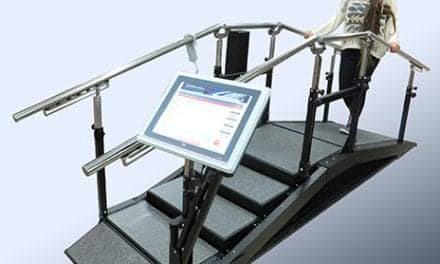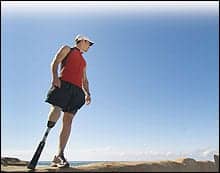GestureTek, Toronto, has announced the 500th sale of its gesture-controlled interactive solutions for the health and disability markets. Hospitals, rehabilitation clinics, doctors’ offices, schools, nursing homes, fitness facilities, community living facilities and recreation centers worldwide have all turned to GestureTek technology to engage, entertain and activate patients and users.
GestureTek is the multiple patent holder in video gesture-control technology for the disability, hospital and education sectors. The company’s touch-free, motion-activated solutions for virtual reality physical therapy, multi-sensory stimulation and immersive play let patients (regardless of age, ability or condition) have fun in a hygienic environment and experience marked improvement in their physical and cognitive abilities.
“Countless research studies support the premise that immersive and interactive technology can improve physical and cognitive outcomes for people with a variety of afflictions, including stroke, traumatic brain injury, cerebral palsy and autism, while also delivering tangible entertainment and recreational benefits,” says Vincent John Vincent, President of GestureTek Inc.
Patients can experience marked improvements in their gross and fine motor skills, balance, flexibility, muscle tone, posture and trunk control when they participate in computer-based motion control interactive therapy regimes. Similarly, gesture-activated multi-media interaction can stimulate language, communications and cognitive skills for those with physical, developmental or behavioural challenges (in addition to the physical fitness and health benefits).
“Long before GestureTek inspired the technology behind Kinect, we had already patented our video gesture control technology and established a long track record in the healthcare market of empowering clinicians and patients alike with our hands-free immersive gesture control systems,” said Vincent John Vincent, President of GestureTek.
Computer-generated programs featuring unique virtual reality activities and simulated tasks may be can be more exciting than traditional therapy regimes. They can also be more hygienic because they are completely touch-free. There’s no need to wear, hold or touch anything special.
Entertainment-oriented surface computing options such as digital playgrounds on floors and walls are also popping up in doctors’ waiting rooms and health center common rooms as a way to keep people (especially kids) busy and anxiety-free while they wait for medical appointments.
Learn more at GestureTek.
(Source: Press Release)




